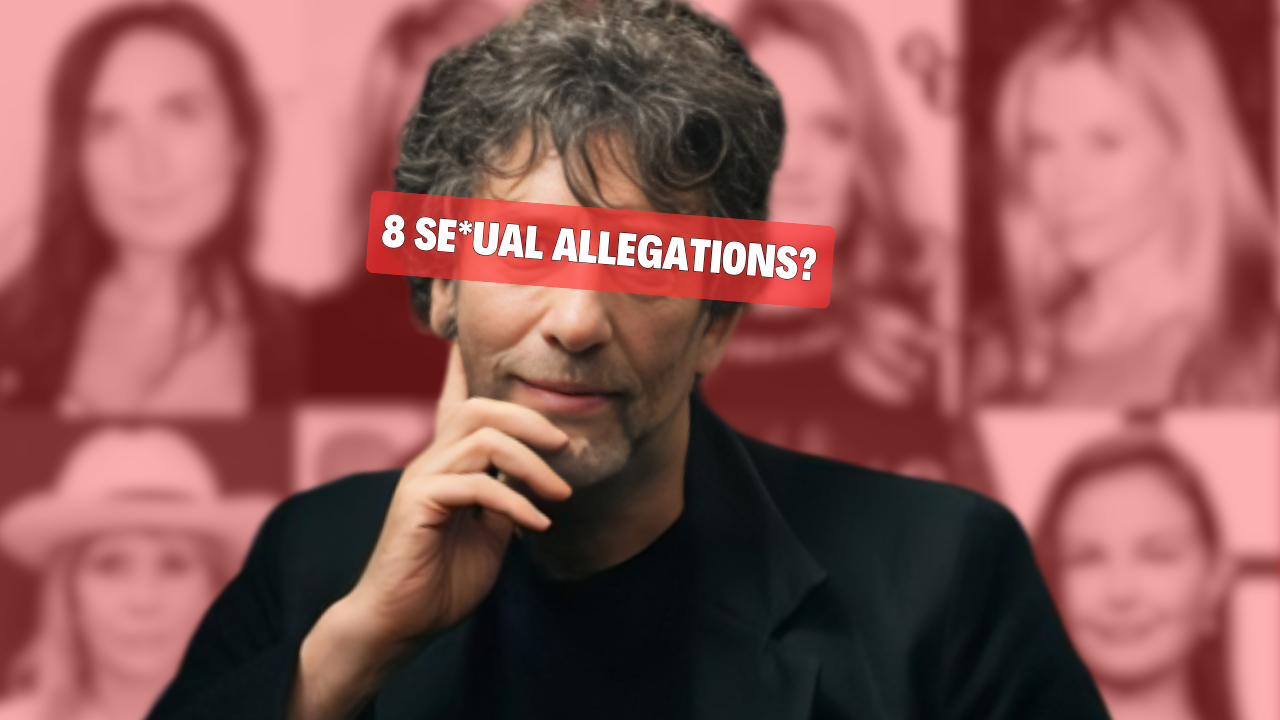Neil Gaiman, a name synonymous with literary brilliance, is facing allegations that have sent ripples through the creative community. Renowned for works like The Sandman, American Gods, and Stardust, Gaiman’s carefully cultivated public persona as a champion of progressive values and feminism is being called into question. This article explores the allegations, the industry’s response, and the broader implications of these revelations.
The allegations first gained widespread attention through an exposé by New York Magazine, featuring the testimony of Scarlet Pavlovich, a former babysitter for Gaiman and his wife, Amanda Palmer. Pavlovich detailed a series of unsettling encounters that began during her time as a 22-year-old drama student. Her initial visits to Gaiman’s home, framed as professional opportunities, reportedly escalated into manipulative and degrading situations.
According to Pavlovich, Gaiman used his influence to pressure her into compromising scenarios, eroding personal boundaries and fostering an environment of control. These incidents reportedly left her emotionally scarred, prompting her to seek support from crisis services. Gaiman allegedly responded to the fallout with financial settlements, raising questions about how such cases are often handled behind closed doors.
Patterns of Exploitation and Control
Pavlovich’s story is not an isolated case. Additional accounts reveal a pattern of behavior in which Gaiman allegedly leveraged his status to dominate those around him. From inappropriate demands to emotionally damaging power dynamics, these stories underscore a troubling misuse of influence.
One particularly troubling narrative involves a woman living on Gaiman’s New York property, who claims she faced inappropriate demands tied to her housing arrangement. Reports suggest this extended to coercive encounters, violating trust and personal autonomy. Like others, she eventually received financial compensation under the terms of a confidentiality agreement, further highlighting a systemic issue in addressing such allegations.
Amanda Palmer’s Alleged Knowledge
Amanda Palmer, Gaiman’s wife, has faced scrutiny regarding her alleged awareness of additional victims. Reports suggest Palmer knew of at least 14 women who may have experienced similar treatment. Her cryptic social media activity, including a post featuring a copy of Lolita placed atop a trash can, has added an enigmatic layer to the unfolding story.
Palmer has yet to provide a clear public statement addressing these claims, leaving many questions unanswered about her role and potential complicity.
The Industry’s Silence and Gaiman’s Retreat
The response from the publishing and entertainment industries has been notably subdued, with many media outlets initially avoiding coverage. Gaiman himself has largely retreated from the public eye, halting social media activity and canceling public appearances. This silence contrasts sharply with his prior vocal advocacy for social justice causes, creating a stark disconnect between his public and private personas.
A Broader Cultural Reckoning
The allegations against Neil Gaiman are emblematic of larger systemic issues within the creative industries. Power imbalances often allow influential figures to act without accountability, while victims face significant barriers to justice. The reluctance of institutions to address such behavior perpetuates a culture of complicity.
As more voices come forward, the need for systemic reform becomes increasingly urgent. Transparent mechanisms for reporting and addressing misconduct are essential to fostering an environment of trust and accountability.
Moving Forward
This unfolding story serves as a critical reminder of the importance of holding even the most celebrated figures accountable. The courage of those who have shared their experiences is a testament to their resilience and determination to seek justice.
Before we proceed further, if you want to explore the full details of this exposé, check the article link in the description. Don’t forget to subscribe to my channel for more in-depth analyses and updates on this story and others like it.
Conclusion
The allegations against Neil Gaiman challenge us to reflect on the broader cultural and systemic changes needed to address misconduct and exploitation. As this story continues to develop, the hope is that it will inspire meaningful reform, ensuring a safer and more equitable environment for all.
By amplifying the voices of survivors and demanding accountability, we can work towards a future where such stories become the exception, not the norm.

